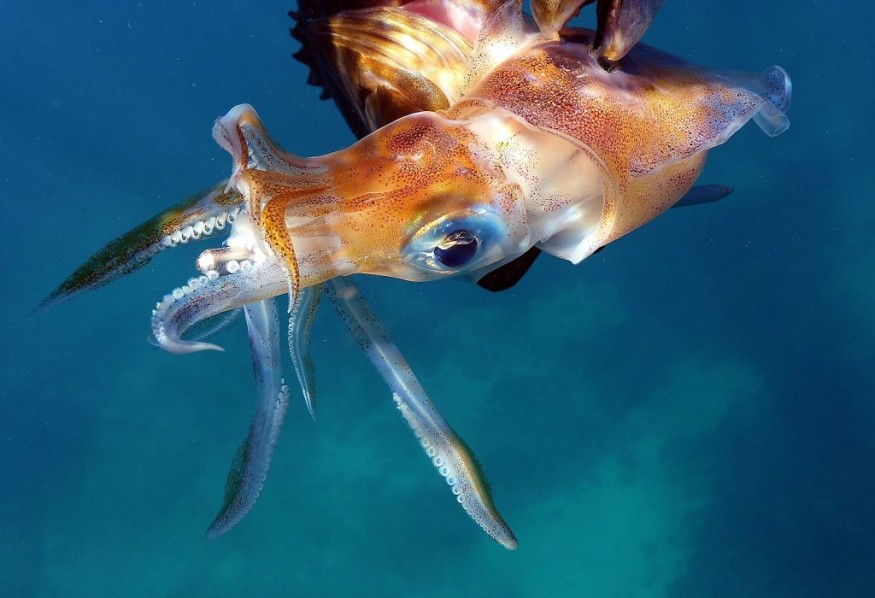Climate change-driven heatwaves are reportedly fueling a dramatic increase in the population of market squid along the Washington and Oregon coasts over the past two decades, as per new research published by the American Fisheries Society in the journal Marine and Coastal Fisheries on January 23.
Marine Heatwaves Causes Squid Bloom

Based on the study, the population of the squid species (Doryteuthis opalescens) from California to the northern Washington market has significantly increased over the past 22 years.
The largest increase was seen in the states of Oregon and Washington, which saw a 39-fold and 25-fold increase in the population density of squid within the period.
The market squid Doryteuthis opalescens has the largest volume in California's fishery industry. The scientists stated climate change is impacting the abundance and distribution of marine resources, as per the study.
"It appears these increases are strongly associated with marine heat waves and that the expansion is occurring across the entire northern California to Washington border but fastest in these northern strata," according to Brandon Chasco, one of the authors of the new research and a scientist at the National Oceanic and Atmospheric Administration (NOAA) Northwest Fisheries Science Center.
Chasco and the other scientists of the new research found that there is a squid bloom or an uptick in the population density of Doryteuthis opalescens squid species when the Pacific Ocean is highly warm-especially if the marine heatwave occur in saltier parts of the water.
What Makes the New Research Unique?
Changes in temperature, including marine heatwaves, are common off the US Pacific coast. Since 2014, there have been multiple incidents of marine heatwaves off the coast of Washington, as per Anchorage Daily News.
Although the occurrence of warming oceans is common in the region, the case of the rising population of Doryteuthis opalescens squid species off the US Pacific coast because of marine heatwaves is unusual. Rising ocean water temperatures are typically associated with a large number of dead fish.
In 2016, experts have blamed the El Nino weather phenomenon, the unusual warming of surface waters in the Pacific Ocean, for a large number of dead fish, whales, and clams seen off the coast of Chile's Pacific beaches, as per NOAA.
Further Research may Bring Advantages
Although multiple studies in the past have shown that climate change and global warming have been occurring, the effects of these phenomena are positive in terms of economic and ecological implications, according to the scientists involved in the new research.
The new research can serve as a tool for future research to explain the squid bloom event during marine heatwaves-as changes in weather may likely affect marine and aquatic ecosystems, as well as fishing opportunities in coastal communities, according to the research.
Furthermore, the scientists hope for more research when it comes to ocean temperature and its effect on marine ecosystems. Such research is necessary since it can help scientists to understand not only climate change-but also accurately predict marine heatwaves in the future.
© 2026 NatureWorldNews.com All rights reserved. Do not reproduce without permission.





